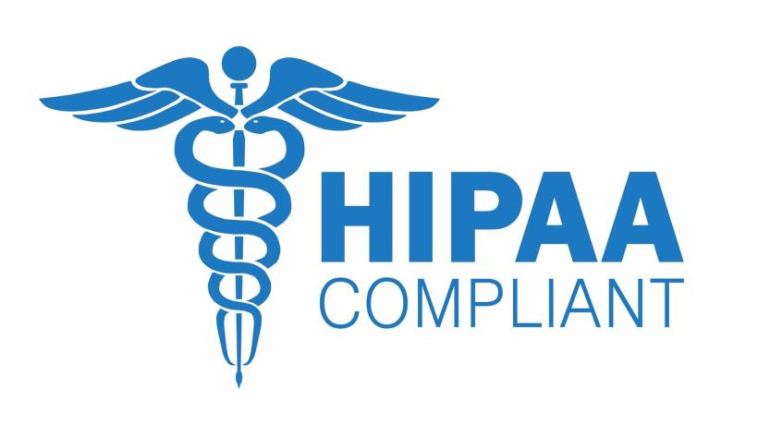- Like
- SHARE
- Digg
- Del
- Tumblr
- VKontakte
- Flattr
- Buffer
- Love This
- Save
- Odnoklassniki
- Meneame
- Blogger
- Amazon
- Yahoo Mail
- Gmail
- AOL
- Newsvine
- HackerNews
- Evernote
- MySpace
- Mail.ru
- Viadeo
- Line
- Comments
- Yummly
- SMS
- Viber
- Telegram
- JOIN
- Skype
- Facebook Messenger
- Kakao
- LiveJournal
- Yammer
- Edgar
- Fintel
- Mix
- Instapaper
- Copy Link
How to Ensure Your Organization is HIPAA Compliant
Here are the steps that healthcare providers need to take to ensure compliance with HIPAA. There are four main steps that every healthcare organization needs to take in order to ensure compliance. These include the following:
1. Designate a Privacy Officer
The first step is to appoint a privacy officer who will be responsible for ensuring that all HIPAA requirements are met. This person should have a good understanding of the law and be able to train staff on HIPAA compliance.
2. Create a Privacy Policy
The second step is to create a privacy policy that outlines how patient data will be protected. This policy should be made available to all staff members and patients. It should be reviewed and updated on a regular basis.
3. Train all staff members
All staff members should be trained on HIPAA compliance. This training should cover the basics of the law, the privacy policy, and how to handle patient data. Staff members should be given time to ask questions and raise concerns.
4. Implement physical and technical safeguards
Physical and technical safeguards should be put in place to protect patient data. This may include installing security cameras, encrypting data, and restricting access to certain areas.
What to Do if You Suspect a HIPAA Violation?
If you suspect that a HIPAA violation has occurred, you should report it to the privacy officer. They will investigate the incident and take appropriate action. Depending on the severity of the violation, they may need to contact the Department of Health and Human Services.
HIPAA compliance is essential for all healthcare organizations. By taking the necessary steps, you can ensure that your organization is in compliance with the law.
How to Ensure if You Have a HIPAA compliant payment processing System?
Not all payment processors are created equal. When you’re looking for a processor, you need to make sure they can offer you the highest level of security and compliance possible. Here are a few things to look for:
1. Look for a processor that is PCI DSS compliant.
The Payment Card Industry Data Security Standard (PCI DSS) is a set of security standards that all companies that process, store, or transmit credit card information must follow. PCI DSS compliance is mandatory for all payment processors.
2. Make sure the processor offers tokenization.
Tokenization is a security measure that replaces sensitive data with a randomly generated number, called a token. Tokenization is more secure than traditional methods of storing credit card information because it makes the data unreadable and useless to hackers.
3. Choose a processor with EMV capabilities.
EMV is a technology that helps to reduce fraud by making it harder for criminals to counterfeit credit cards. All new credit cards are now being issued with an EMV chip, and all businesses that accept credit cards must have the ability to process EMV payments.
4. Ask about the processor’s security measures.
You should always ask about a processor’s security measures before you sign up for their service. Find out what type of encryption they use, how they store data, and what their policies are for managing data.
5. Make sure the processor is compliant with HIPAA.
If you’re a healthcare organization, you need to make sure your payment processor is compliant with the Health Insurance Portability and Accountability Act (HIPAA). HIPAA compliance is mandatory for all businesses that process, store, or transmit protected health information (PHI).
The Takeaway
When it comes to HIPAA compliance, a healthcare organization needs to designate a privacy officer. create a privacy policy, train all staff members, and implement physical and technical safeguards. By taking these steps, healthcare organizations can ensure compliance with HIPAA and protect the privacy of their patients.
When it comes to HIPPA compliance and payment processing, a healthcare organization needs to look for a processor that is PCI DSS compliant, make sure the processor offers tokenization and EMV capabilities, ask about the processor’s security measures, and make sure the processor themselves are compliant with HIPAA. By following these guidelines, you can be sure that you’re choosing a payment processor that can offer you the highest level of security and compliance.
Thank you for reading! We hope this series has been helpful in understanding HIPAA and compliance.


